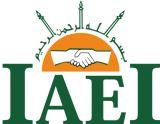PENERAPAN AKAD MUDHARABAH MUQAYYADAH PADA BANK SYARIAH DI INDONESIA
Abstract
Full Text:
PDFReferences
Al-Aliyy. (2006). Al-Qur'an Dan Terjemahannya. Bandung: CV penerbit Diponegoro.
Al Arif, M. Nur Rianto. (2010). Dasar-Dasar Pemasaran Bank Syariah. Bandung: Alfabeta.
Al-Kasani, Alauddin. (tt). Bada'I As-Syana'I fi Tartib Asy-Syara'I, Juz VI.
Arifin, Zainul. (2002). Dasar-dasar Manajemen Bank Syariah. Jakarta: Anggota IKAPI.
Fatwa MUI No. 87/DSN-MUI/XII/2012 tentang Metode Perataan Penghasilan (Income Smoothing) Dana Pihak Ketiga.
Huda, Nurul dan Mohammad Heykal. (2010). Lembaga Keuangan Islam: Tinjauan Teoretis dan Praktis. Jakarta: Prenadamedia Group.
Janwari, Yadi. (2015). Fiqh Lembaga Keuangan Syariah. Cet-2. Bandung: PT. Remaja Rosdakarya.
Majah, Abdullah Muhammad bin Yazid al-Qazwini Ibnu. (2013). Ensiklopedi Hadits Ibnu Majah, Terj. Saifuddin Zuhri. Jakarta: Almahira.
Mardani. (2014). Hukum Bisnis Syariah. Jakarta: Prenadamedia Group.
Muthaher, Osmad. (2012). Akuntansi Perbankan Syariah. Ed-1. Cet-1. Yogyakarta: Graha Ilmu.
Nurhayati, Sri dan Wasilah. (2015). Akuntansi Syariah di Indonesia. Jakarta: Salemba Empat.
Rustam, Bambang Rianto. (2013). Manajemen Risiko Perbankan Syariah Di Indonesia. Jakarta: Salemba Empat.
Sholihin, Ahmad Ifham. (2010). Buku Pintar Ekonomi Syariah. Jakarta: PT. Gramedia Pustaka Utama.
Sjahdeini, Sutan Remy. (2014). Perbankan Syariah. Jakarta: Kencana.
Soemitra, Andri. (2009). Bank dan Lembaga Keuangan Syariah. Jakarta: Kencana.
Sudiarti, Sri. (2018). Fiqh Muamalah Kontemporer. Medan: Febi UINSU Press.
Sutanto, Hery dan Khaerul Umam. (2013). Manajemen Pemasaran Bank Syariah. Bandung: Pustaka Setia.
Syafei, Rachmat. (2001). Fiqh Muamalah. Bandung: Pustaka Setia.
DOI: http://dx.doi.org/10.30821/se.v7i1.9806
Refbacks
- There are currently no refbacks.













